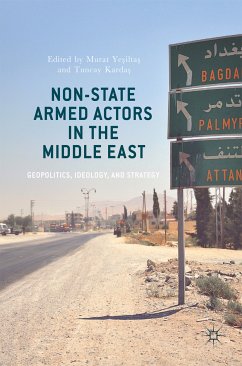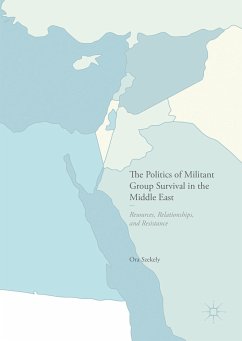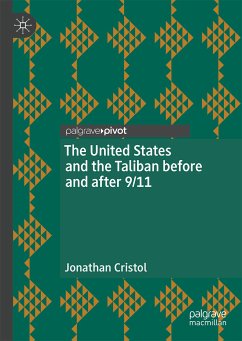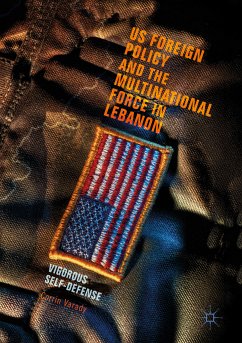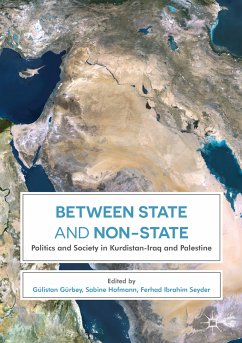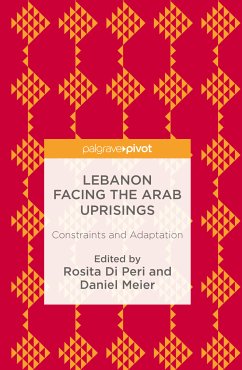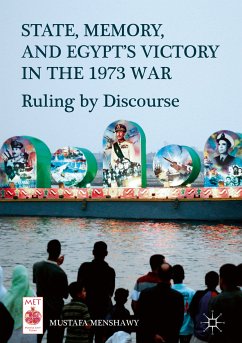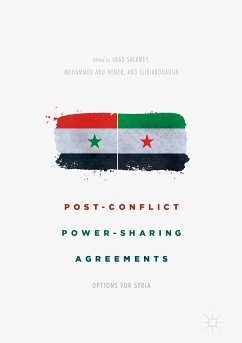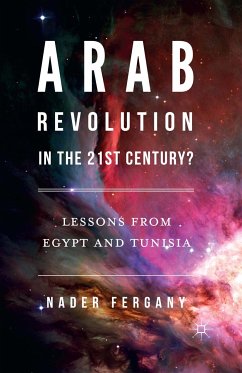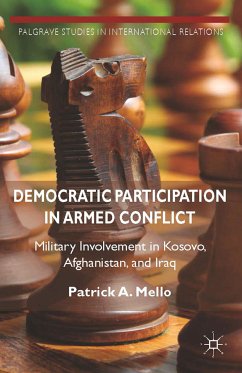
eBook, PDF
Democratic Participation in Armed Conflict (eBook, PDF)
Military Involvement in Kosovo, Afghanistan, and Iraq

PAYBACK Punkte
20 °P sammeln!






Under which conditions do democracies participate in war, and when do they abstain? Providing a unique theoretical framework, Mello identifies pathways of war involvement and abstention across thirty democracies, investigating the wars in Kosovo, Afghanistan and Iraq.
Dieser Download kann aus rechtlichen Gründen nur mit Rechnungsadresse in A, B, BG, CY, CZ, D, DK, EW, E, FIN, F, GR, HR, H, IRL, I, LT, L, LR, M, NL, PL, P, R, S, SLO, SK ausgeliefert werden.
Patrick A. Mello is a Research Associate and Lecturer at Dresden University of Technology, Germany. His research interests include international relations theory and the influence of domestic politics on foreign policy as well as comparative and case study research methods. He has written articles for the European Journal of International Relations and the Journal of International Relations and Development.
Produktdetails
- Verlag: Palgrave Macmillan UK
- Seitenzahl: 259
- Erscheinungstermin: 22. Mai 2014
- Englisch
- ISBN-13: 9781137386519
- Artikelnr.: 41319807
'This timely study advances the debate about democracies and war. Mello focuses not on why democracies don't fight each other but instead on the question of when democracies are likely to intervene abroad. He provides new and important insights into the role of public opinion, identifies those institutional factors most likely to constrain executive action, and considers how the larger organizational environment influences decisions about the use of force. A must read for anyone interested in the forces driving military intervention today.' - Elizabeth Kier, University of Washington, USA
'Analyzing the wide variation in democratic alliance contributions in Kosovo, Afghanistan, and Iraq, Mello debunks prominent explanations that
'Analyzing the wide variation in democratic alliance contributions in Kosovo, Afghanistan, and Iraq, Mello debunks prominent explanations that
Mehr anzeigen
give undue weight to single variables. Rather, he finds that these contributions are explained by complex interactions among public opinion, parliamentary veto points, military capabilities, partisanship, and especially, constitutional constraints. Mello shows the implications of his argument for alliance operations in Libya in 2011 and for the relative inaction of democracies regarding Syria since 2011. This book is essential reading for anyone interested in alliances or the foreign policies of democracies.' - Andrew Bennett, Georgetown University, USA
'By systematically studying the impact of public support, parliamentary powers, constitutional restrictions and executive partisanship, Patrick Mello presents a comprehensive and nuanced picture of the forces driving liberal democracies to participate in military mission. Examining more than twenty democracies and three major interventions, this is a major contribution to our understanding of the complex relationship between democratic politics, peace and armed conflict. 'Democratic Participation in Armed Conflict' is essential reading for everyone interested in the Democratic Peace debate.' - Wolfgang Wagner, Vrije Universiteit Amsterdam, The Netherlands
'This bookaddresses an essential but neglected question of the democratic peace: Why are some democracies more war prone than others? Patrick Mello develops a nuanced argument that integrates institutional arrangements, political preferences and power status to account for democratic conflict behavior. With this theoretically innovative, methodologically rigorous and data-rich study, Mello has made a major contribution to research on democracy and war involvement.' - Christopher Daase, Goethe University Frankfurt, Germany
'A breath of theoretical and methodological fresh-air into the discussion of democracy and foreign policy. Combines theory, QCA, and case studies into a powerful package for explaining when democracies get involved in armed conflict.' - Gary Goertz, University of Notre Dame, USA
'[This] book's conclusions add substantially to the rich academic debate on democratic peace theory and state participation in multilateral operations. This theoretically innovative andmethodologically rigorous work can be highly recommended to anyone interested in the subject.' - Tim Haesebrouck, Ghent University, Belgium
'This book impresses through the accuracy and thoroughness with which a range of explanatory factors are tested on a large number of cases in a methodologically innovative way. Steering clear of drawing simplified conclusions, the book makes an important contribution to the study of democracies' conflict behaviour and foreign policy analysis.' - Wolfgang Wagner, Chair in International Security, VU University Amsterdam
'By systematically studying the impact of public support, parliamentary powers, constitutional restrictions and executive partisanship, Patrick Mello presents a comprehensive and nuanced picture of the forces driving liberal democracies to participate in military mission. Examining more than twenty democracies and three major interventions, this is a major contribution to our understanding of the complex relationship between democratic politics, peace and armed conflict. 'Democratic Participation in Armed Conflict' is essential reading for everyone interested in the Democratic Peace debate.' - Wolfgang Wagner, Vrije Universiteit Amsterdam, The Netherlands
'This bookaddresses an essential but neglected question of the democratic peace: Why are some democracies more war prone than others? Patrick Mello develops a nuanced argument that integrates institutional arrangements, political preferences and power status to account for democratic conflict behavior. With this theoretically innovative, methodologically rigorous and data-rich study, Mello has made a major contribution to research on democracy and war involvement.' - Christopher Daase, Goethe University Frankfurt, Germany
'A breath of theoretical and methodological fresh-air into the discussion of democracy and foreign policy. Combines theory, QCA, and case studies into a powerful package for explaining when democracies get involved in armed conflict.' - Gary Goertz, University of Notre Dame, USA
'[This] book's conclusions add substantially to the rich academic debate on democratic peace theory and state participation in multilateral operations. This theoretically innovative andmethodologically rigorous work can be highly recommended to anyone interested in the subject.' - Tim Haesebrouck, Ghent University, Belgium
'This book impresses through the accuracy and thoroughness with which a range of explanatory factors are tested on a large number of cases in a methodologically innovative way. Steering clear of drawing simplified conclusions, the book makes an important contribution to the study of democracies' conflict behaviour and foreign policy analysis.' - Wolfgang Wagner, Chair in International Security, VU University Amsterdam
Schließen
Für dieses Produkt wurde noch keine Bewertung abgegeben. Wir würden uns sehr freuen, wenn du die erste Bewertung schreibst!
Eine Bewertung schreiben
Eine Bewertung schreiben
Andere Kunden interessierten sich für


